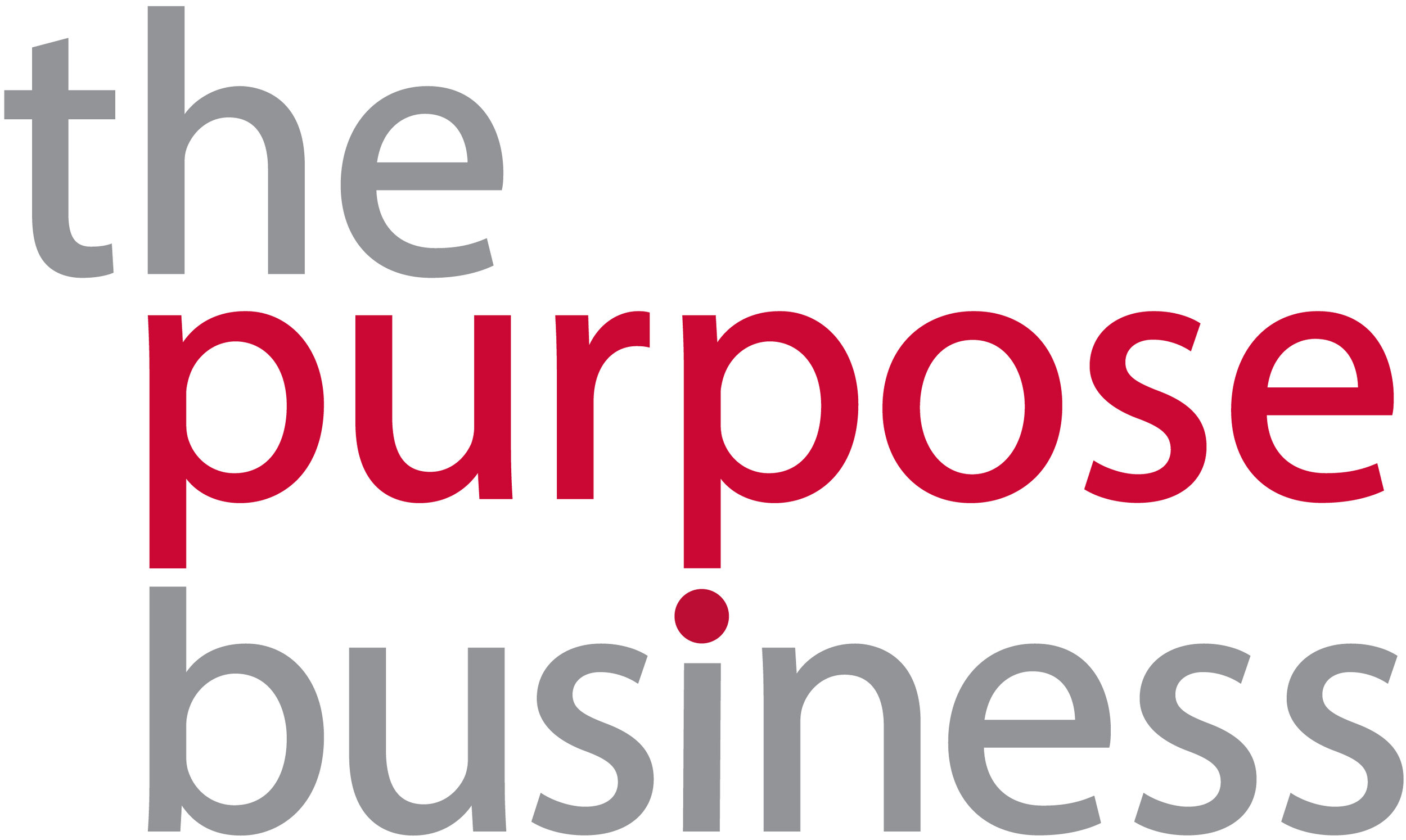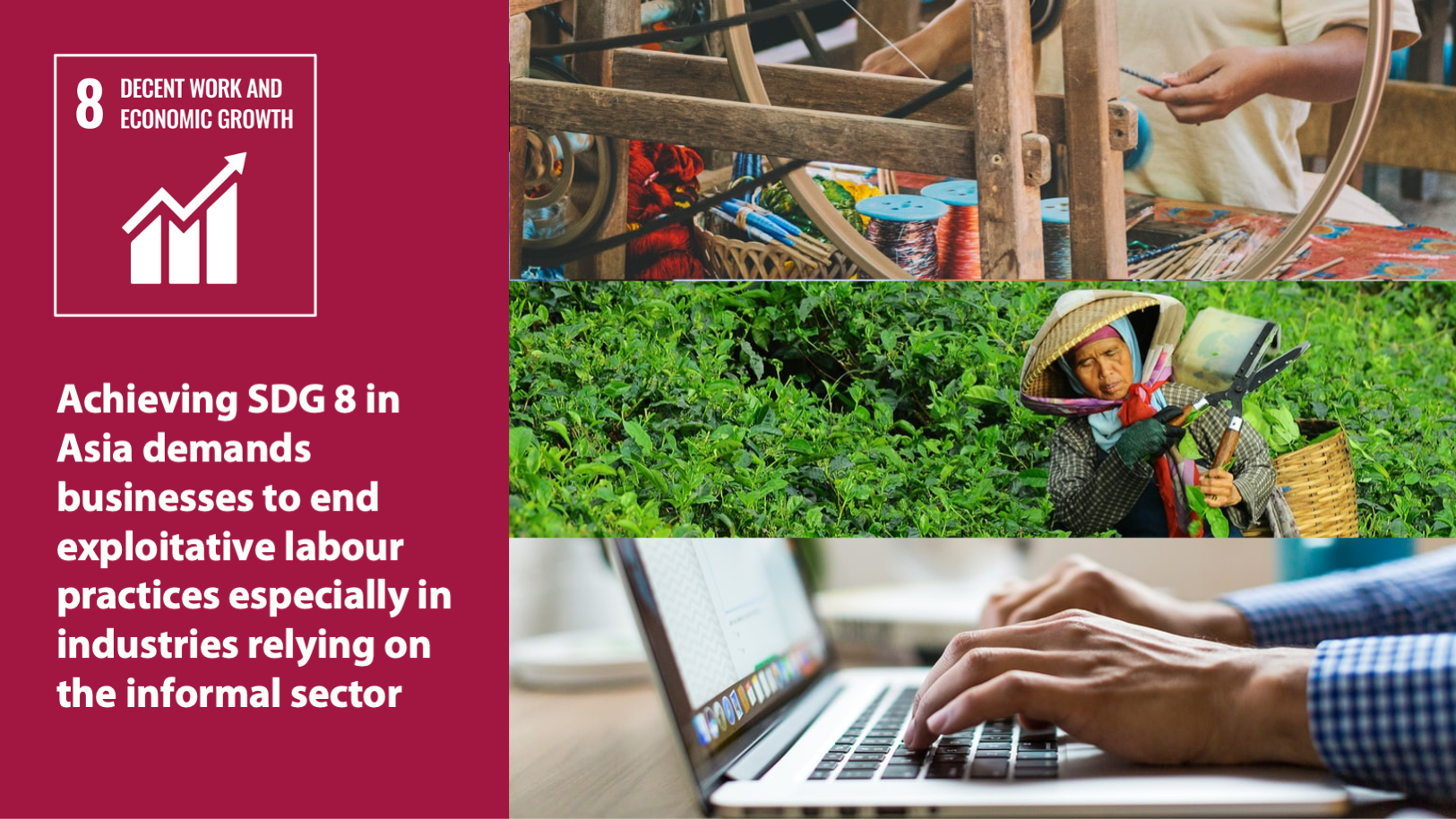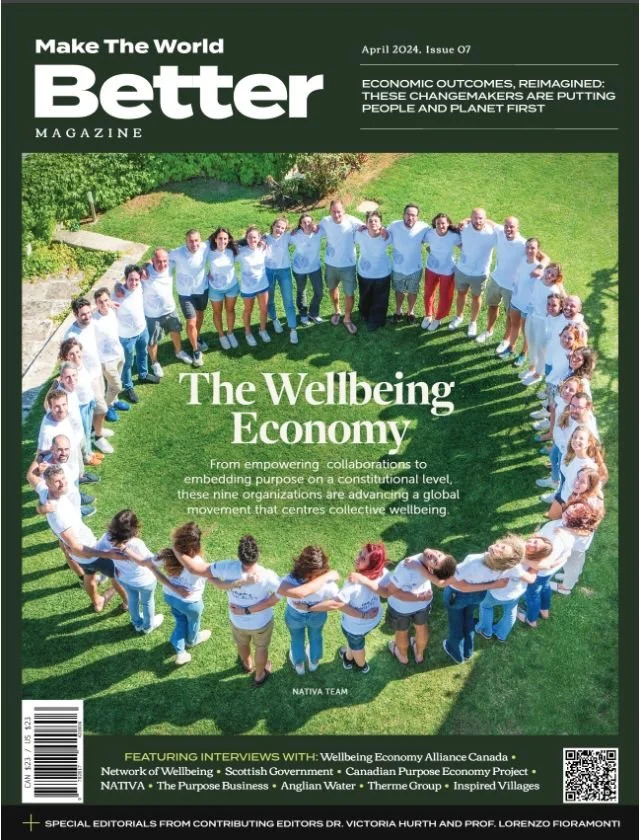The path to decent work and economic growth
Coming from our report, Three SDGs that are critical for Asian businesses - and the 2030 Agenda – The Purpose Business highlights the urgent need to focus on goals 8, 12 and 14. Why? We consider them the farthest-reaching, most amplifying and most relevant to the private sector in Asia. Here, Sustainability Advisor Rebecca Walker Chan zones in on decent work and economic growth.
When it comes to the Sustainable Development Goals (SDGs), businesses are well poised to contribute to and adopt sustainable practices. They can partner with public or non-profit organisations and put pressure on governments around issues such as forced labour, low wages, environmental degradation, over-consumption and production.
But where to start? This looks at 'SDG 8: Decent Work and Economic Growth' aims to give corporates in Asia a starting point to truly make a difference.
SDG 8: The driving force behind sustainable economic growth
The ambition of SDG 8 is to help millions of workers who continue to be confronted with low wages yet work long hours, are constantly concerned about their health and safety at work and may be burdened with a lack of overall social protection and job security. SDG 8 promotes inclusive growth and productivity as well as ‘decent work.’ This concept – which, according to the ILO, is comprised of employment creation, social protection, rights at work and social dialogue - reflects a global need for the respect of core labour rights as a necessary, effective, and inclusive pathway to economic growth.
When it comes to progress on SDG 8, Asia Pacific is overall under-performing and exploitative labour practices and disregard for labour rights and workplace safety are prevalent. The region is the second worst in the world (after the Middle East and North Africa) for workers’ rights. Labour productivity is below the global average, and a large proportion of the labour force is informally employed, and youth are facing high unemployment or underemployment rates. With an average 4.1% unemployment rate in 2017 and 2018 and a steadily growing population, there has arguably been no better time to invest in decent work and economic growth. Even more so once the full impacts of the COVID-19 pandemic are measured throughout the region.
Achieving SDG 8 calls for a systemic transformation in how the economy is framed and how the private sector conducts business. A hurdle specific to businesses in Asia will be overcoming dependence on agricultural and informal sector jobs as well as a tendency for self-employment which makes safeguarding and future proofing fair and equitable labour markets quite challenging. It also calls for a major overhaul of labour rights to end exploitative labour practices in several industries such as agriculture, fisheries, construction, and manufacturing.
Levels of engagement
So how can businesses contribute to the achievement of SDG 8? Building on what we refer to as the Responsible Growth Curve, we consider most organisations to be positioned along the three levels of engagement when it comes to the SDGs:
How to move forward?
To help get the ball rolling, TPB recommends the following approaches and starting points below on how to better focus efforts and contributions for SDG 8, organised by level of engagement.
Follow
The approach is to comply with or extend local labour standards. To improve internal business operations that relate to SDG 8 – start with these points:
Consider adjusting your current labour, hiring, training and development policies to improve workplace practices for your own employees in relation to any of the relevant SDG 8 targets
Then, consider improving workplace practices beyond legal compliance - this can result in higher morale and job satisfaction and foster creativity and innovation
Change what you need to ensure that your company provides:
equal pay and employment practices among a diverse workforce (SDG 8.5), and
the protection of labour rights and worker safety (SDG 8.8)
Conduct a full SDG mapping to confirm that your motivations and alignment with SDG 8 are meaningful for your business and are communicated authentically in your corporate reports
Sustain
Not all companies are able to enact fair, equal and inclusive hiring practices because of data collection limitations. Your approach should be to use actionable insights from data to inform policy improvement in workplace engagement – start with these points:
Build employee diversity indicators beyond gender splits, covering other valuable aspects such those working with disabilities, migrant status, nationalities, specialised education experiences, etc. – these highlight your corporate diversity and indicate employee groups who may warrant more support in their career training and development
Then, streamline the data collection process to easily collect and track data over time to show annual progress.
Additional internal actions can be to:
Implement effective policies on maternity, paternity, and parental leave, as well as advocacy for better sharing of family responsibilities
Assess your value chain to discern the level at which informal labour supports your enterprise. Respond by creating integrated strategies to ensure and protect the dignity of work for all, including informal workers and those in precarious employment
Institute corporate policies to combat discriminatory practices and gender-based stereotypes about the value of women’s work
Additional external actions can be to:
Take part in and support comprehensive labour inspection systems that can enable not only better-quality data, but also potentially address issues of unfair labour practices
Support national policies and programmes that aim to combat child labour
Advocate for assistance to victims of forced labour
Achieve
To achieve SDG 8, we need business leaders to steer workplace practices, internally and beyond – start with these points:
Uplift your employees beyond the standard hiring practices and technical training programmes. For example, to align with SDG 8.10, develop internal courses in personal financial literacy that can contribute to the strength and knowledge bases of the wider national workforce
Extend beyond employee volunteering and charity programmes and create strategic public-private partnership opportunities, such as collaborating with local NGOs, to offer specialised training or services for local communities. For example, if your company provides web-based services, your employees can volunteer to offer in-kind training on how to build a website or computer programming
Establish or support transparent multi-stakeholder discussions that include representatives from governments, employers’ and workers’ organisations, civil society, academic institutions, international and regional organisations, local communities, youth, industry players and the media to bring forward solutions to decent work and economic growth challenges
Leverage existing data from labour inspections, audits, research studies and certifications on child labour, forced labour and trafficking in supply chains. Share that information with local human rights groups and the government
Uphold workers’ freedom of association and their right to organise to deter incidences of forced labour, child labour and trafficking in your supply chain. According to the UN, partnering with workers and upholding their right to collective bargaining can contribute to more effective labour relations
If there is no national policy on Decent Work where you operate, step up to address these issues by aligning with international frameworks and best practice guidance such as the Decent Work Agenda, which is one of the foundations of the UN’s 2030 Agenda
Support existing international initiatives on ethical recruitment and labour rights standards such as the IOM’s IRIS initiative, Universal Declaration of Human Rights, the ILO’s Declaration on Fundamental Principles and Rights at Work and the United Nations Global Compact. The benefits of becoming part of a global community are vast, and can inspire your company to take a proactive, continuous improvement approach to social and environmental responsibility.
Beyond the recommended actions listed, there are many more opportunities to improve corporate SDG alignment and to lead the global development community towards for purposeful SDG data collection and analysis. It all starts through corporate SDG alignment and acting sustainably beyond financial donations.





